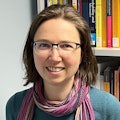The group is very active both in applications of statistical techniques and in theory.
The group is very active both in applications of statistical techniques and in theory.
The main areas of research within the current group are:
- time series analysis
- multivariate data analysis
- applications to market research
- search algorithms and stochastic global optimisation
- probabilistic number theory
- optimal experimental design
- stochastic processes and random fields with weak and strong dependence
- diffusion processes and PDE with random data
- anomalous diffusion
- Burgers and KPZ turbulence, fractional ordinary and PDE, and statistical inference with higher-order information
- extreme value analysis
Various topics in fisheries and medical statistics are also considered, such as errors in variables regression.
Collaborations
Statisticians within the School have been prominent in collaborating with researchers in other disciplines. There are strong links with:
- the School of Medicine, working on applications of multivariate statistics and time series analysis in bioinformatics
- the School of Engineering, in the areas of image processing and stochastic global optimisation of complex systems
- the Business School, in the field of analysis of economics time series
Ongoing international collaborations exist with many Universities including Columbia, Taiwan, Queensland, Aarhus, Roma, Cleveland, Pau, Hokkaido, Boston, Caen, Calambria, Maine, Trento, Nice, Bratislava, Linz, St.Petersburg, Troyes, Vilnius, Siegen, Mannheim, and Copenhagen.
Industrial sponsorship
Significant industrial sponsorship has been obtained from:
- Procter and Gamble (USA) working on statistical modelling in market research
- the Biometrics unit of SmithKline Beecham collaborating on different aspects of pharmaceutical statistics
- ACNielsen/BASES (USA) on applications of mixed Poisson models in studying marketing consumer behaviour
- General Electric HealthCare on environmental statistics
Research
Our main areas of research within the current group are:
- time series analysis
- multivariate data analysis
- applications to market research
- search algorithms and stochastic global optimisation
- probabilistic number theory
- optimal experimental design
- stochastic processes and random fields with weak and strong dependence
- diffusion processes and PDE with random data
- anomalous diffusion
- Burgers and KPZ turbulence
- fractional ordinary and PDE, and statistical inference with higher-order information.
In focus
Time series analysis
In recent years a powerful technique of time series analysis has been developed and applied to many practical problems. This technique is based on the use of the Singular-value decomposition of the so-called trajectory matrix obtained from the initial time series by the method of delays. It is aimed at an expansion of the original time series into a sum of a small number of 'independent' and 'interpretable' components.
Also, the spatial analogies of the popular ARMA-type stochastic time series have been developed based on the fractional generalizations of the Laplacian with two fractal indices. These models describe important features of processes of anomalous diffusions such as strong dependence and/or intermittency.
Multivariate statistics
The objective is the development of a methodology of exploratory analysis of temporal-spatial data of complex structures with the final aim of construction of suitable parametric models.
The applications include various medical, biological, engineering and economical data. Several market research projects where the development of statistical models was a substantial part have taken place.
Stochastic global optimisation
Let ƒ be a function given on a d-dimensional compact set X and belonging to a suitable functional class F of multi extremal continuous functions.
We consider the problem of its minimization, that is approximation of a point x' such that ƒ(x')=min ƒ(x), using evaluations of ƒ at specially selected points.
Probabilistic methods in search and number theory
Several interesting features of the accuracy of diophantine approximations can be expressed in probabilistic terms.
Many diophantine approximation algorithms produce a sequence of sets F(n), indexed by n, of rational numbers p/q in [0,1]. Famous examples of F(n) are the Farey sequence, the collection of rationals p/q in [0,1] with q<=n, and the collection of all n-th continued fraction convergents.
Stochastic processes
New classes of stochastic processes with student distributions and various types of dependence structures have been introduced and studied. A particular motivation is the modelling of risk assets with strong dependence through fractal activity time.
The asymptotic theory of estimation of parameters of stochastic processes and random fields has been developed using higher-order information (that is, information on the higher-order cumulant spectra). This theory allows analysis of non-linear and non-Gaussian models with both short- and long-range dependence.
Burgers turbulence problem
Explicit analytical solutions of Burgers equation with quadratic potential have been derived and used to handle scaling laws results for the Burgers turbulence problem with quadratic potential and random initial conditions of Ornstein-Uhlenbeck type driven by Levy noise.
Results have considerable potential for stochastic modelling of observational series from a wide range of fields, such as turbulence or anomalous diffusion.
Topics in medical statistics
Several topics that have been associated with medical statistics presently researched in Cardiff include time-specific reference ranges, and errors in variables regression. Current research focuses on the search for a unified methodology and approach to the errors in variables problem.
Extreme Value Analysis
Extreme value analysis is a branch of probability and statistics that provides non-parametric procedures for extrapolation beyond the range of data (as good as possible and depending on the quality of data, knowing the limits is also an important issue). Its methods are usually relevant for institutions that are exposed to high risks, for instance, financial services and insurance companies or environmental engineering institutions.
Meet the team
Events
Seminars
All seminars will be held virtually via Zoom and commence at 14:10 on Thursdays (unless otherwise stated).
View the seminar calendar of the Statistics and OR group.
The calendar is maintained independently by members of the research groups.
Please contact Dr Mark Tuson for more details regarding Operational Research/WIMCS lectures and Bertrand Gauthier and Kirstin Strokorb for more details regarding Statistics lectures.
Past events
Next steps
Research that matters
Our research makes a difference to people’s lives as we work across disciplines to tackle major challenges facing society, the economy and our environment.
Postgraduate research
Our research degrees give the opportunity to investigate a specific topic in depth among field-leading researchers.
Our research impact
Our research case studies highlight some of the areas where we deliver positive research impact.










